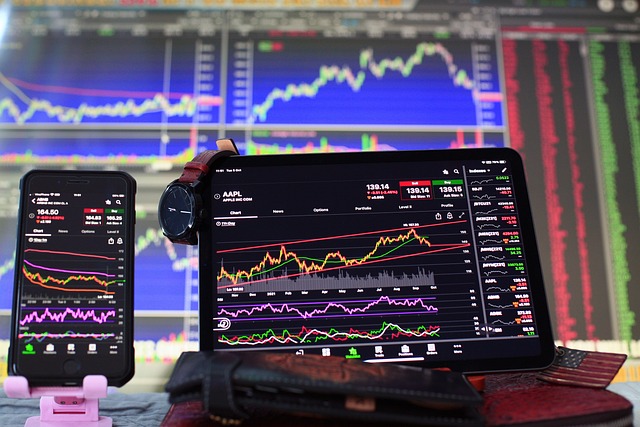The Evolution and Future of AI Trading Bots
Author: Jameson Richman Expert
Published On: 2024-07-30
Prepared by Jameson Richman and our team of experts with over a decade of experience in cryptocurrency and digital asset analysis. Learn more about us.
Artificial intelligence (AI) has transformed various sectors, and finance is no exception. AI trading bots have gained tremendous popularity, enabling traders to automate their strategies, analyze data more efficiently, and execute trades at lightning speed. This article delves into the intricacies of AI trading bots, exploring their benefits, challenges, and future prospects, while incorporating personal insights along the way.

What Are AI Trading Bots?
AI trading bots are algorithm-driven software programs designed to analyze market data, identify trading opportunities, and execute trades on behalf of users, often without human intervention. These bots leverage machine learning, neural networks, and complex algorithms to make informed decisions based on real-time data.
How Do They Work?
At their core, AI trading bots rely on the following components:
- Data Analysis: They collect and analyze vast amounts of market data, including price movements, volume, and market trends.
- Machine Learning: Using historical data, these bots learn patterns and improve their predictions over time, adapting to market changes.
- Execution Orders: Once a trading opportunity is identified, AI trading bots execute buy or sell orders at optimal prices.
My opinion is that the capability of machine learning to adapt and optimize strategies gives these bots a distinct advantage over human traders who might be limited by emotional biases and a lack of data processing speed.
Benefits of AI Trading Bots
1. Increased Efficiency and Speed
AI trading bots can analyze vast datasets in seconds, making decisions based on multiple variables to capitalize on trading opportunities quickly. In my experience, speed is a crucial factor in trading; even a few seconds can make a significant difference in profits and losses.
2. Emotionless Trading
Human traders often struggle with emotional decision-making, leading to impulsive trades. AI trading bots, however, operate based solely on logic and analysis. They follow predefined strategies rigorously, which can lead to more consistent performance.
3. 24/7 Market Monitoring
AI trading bots can run continuously without breaks, allowing them to monitor markets and trade at any hour. This is particularly valuable in the cryptocurrency space, where markets operate around the clock.
Challenges of AI Trading Bots
1. Market Volatility
While AI trading bots are equipped to handle data analysis, sudden market shifts can pose a significant risk. Bots programmed on previous data may not adapt quickly enough to unforeseen events. I believe that relying solely on these bots without human oversight can lead to substantial losses during volatile conditions.
2. Overfitting Issues
In machine learning, overfitting occurs when a model learns the noise in the training data rather than the underlying patterns. This can lead to poor performance in live markets, as the bot may only excel in backtesting scenarios. Incorporating robust validation techniques is essential to mitigate this risk.
3. Dependence on Technology
A heavy reliance on AI trading bots can diminish a trader's skills and understanding of the market. I believe that while technology can enhance trading strategies, it shouldn't completely replace the need for human insight and knowledge.

The Future of AI Trading Bots
1. Integration with Evolving Technologies
As technology continues to evolve, AI trading bots will likely integrate with new tools like blockchain tech and advanced analytics. This integration can create more transparent, accountable trading environments. I foresee that combining AI with blockchain could revolutionize trust in trading systems.
2. Personalized Trading Strategies
Future AI trading bots may offer enhanced customization options, allowing traders to tailor bots specifically to their preferences and risk tolerance. This level of personalization can enhance user confidence and improve trading outcomes. From my perspective, a personalized approach could bridge the gap between technology and human intuition.
3. Ethical Considerations and Regulations
As AI trading bots become more prevalent, ethical concerns surrounding their use will naturally surface. Issues of market manipulation, transparency in decision-making, and data privacy need to be addressed both by regulators and the developers of such technologies. Consequently, I believe that we will see a shift towards more stringent regulations governing AI trading practices.
Conclusion
AI trading bots present exciting opportunities and formidable challenges in the world of finance. While they offer unmatched efficiency and the ability to make data-driven decisions, their reliance on historical data and susceptibility to unforeseen events caution against blind trust in automation. As we navigate the future of AI trading, it is crucial to find a balance between leveraging technology and maintaining human oversight to ensure sustainable trading success.
In conclusion, the evolution of AI trading bots heralds a new era of trading that could redefine how we interact with financial markets. Embracing this technology thoughtfully and ethically will be paramount in shaping a future where traders can achieve financial objectives without succumbing to the pitfalls of market volatility.